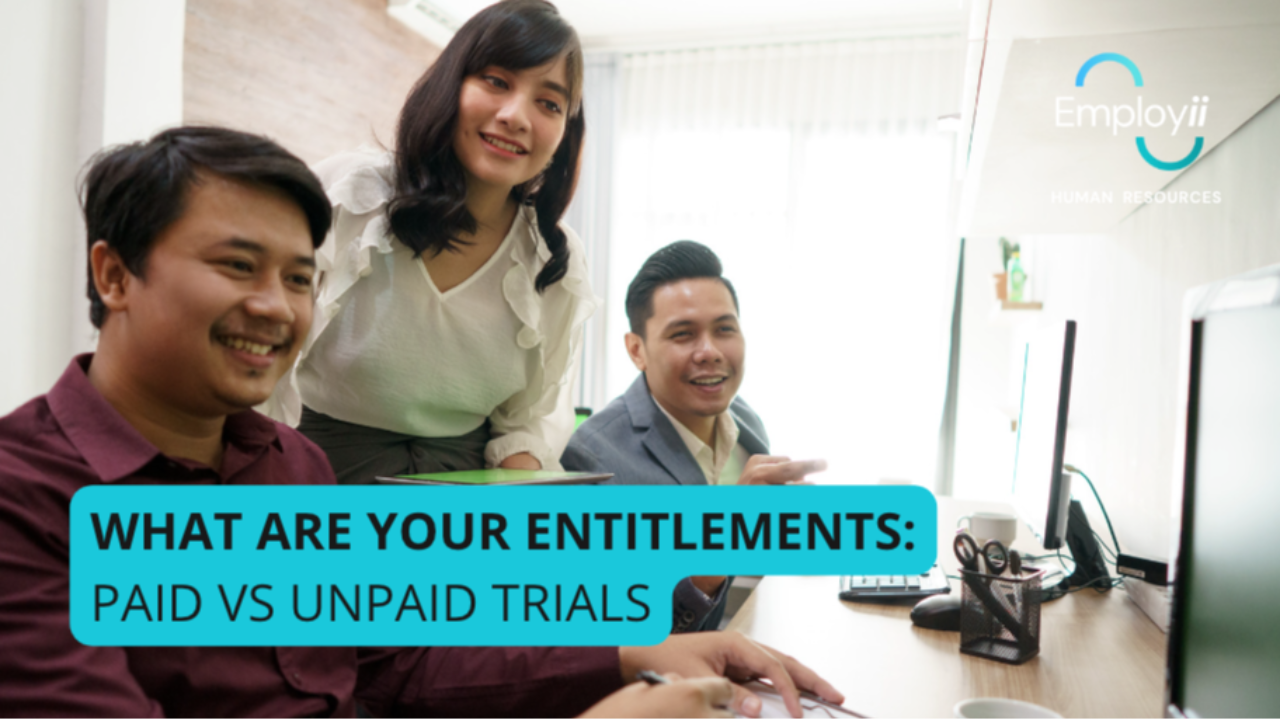
What are Your Entitlements: Paid vs Unpaid Trials
Oct 23, 2023Work trials are extremely common as they allow an employer to determine if an employee is suitable for the role before officially offering them a position. Work trials also give the employee an opportunity to showcase their suitability and range of skills.
What distinguishes an unpaid work trial from paid work?
- The shift is long enough to allow the employee to showcase their skills (typically, this ranges from 1-3 hours depending on the complexity of the job).
- The worker being trialed MUST be supervised at ALL TIMES.
When does a trial constitute paid work?
The employer is obligated to pay a worker (at least the minimum rate of pay) if:
- The worker is required to undertake productive work without supervision.
- The worker is asked to come in for more than 1 'unpaid trial' to assess their suitability for the role. If an employee is unable to determine your suitability after 1 shift, that's okay! BUT they would be required to hire you as a casual or employ you for a probationary period, both of which constitute PAID work.
As an employee, you should seek to make the most of your trial shift, whether it be paid or unpaid. We suggest that you:
- Ask questions. It's also important that you determine your suitability for the role. Ask about the work culture, and hear what other employees have to say about their positions.
- If your potential employer hasn't stipulated whether the trial will be paid or not, this gives you a great opportunity to ask.
- Know your rights. Have an understanding of what you can/cannot do on an unpaid trial to ensure the potential employer is not taking advantage of the free labor.
Still unsure? Here are some examples from Fair Work of when a trial would be paid versus unpaid.
EXAMPLE 1: Lawful unpaid trial
Jack applies for a job as a trades assistant at a local panel beaters. As part of the applicant screening process, Jack is advised by the owner that on the day of the interview he'll need to show he knows his way around a car and a workshop, because it's a minimum requirement of the job. Jack agrees.
To do this, after the interview, Jack is asked to follow one of the tradesmen doing body repairs. The tradesman watches Jack to make sure he knows how to work safely and use the right tools. Jack shows he meets the minimum criteria for the role and the owner offers Jack the job.
Jack's brief trial was reasonable to demonstrate his skills and he does not need to be paid for the trial.
EXAMPLE 2: Unpaid trial that should be paid
Jessica sees an advertisement on her university notice board for a job as a barista at a campus café.
The position was advertised for Monday, Tuesday and Thursday mornings from 7am to 12 noon. The successful candidate needs to have at least 3 years' experience and be able to make a wide range of coffees.
At her interview, Jessica is advised that she will need to work the first week unpaid to give the café manager time to see whether or not she is suitable for the job. She is also advised that if she isn't able to work any of the shifts in the first week, she needs to advise the manager the night before and arrange someone to cover her shift.
The duration of the 'trial' and the requirements placed on Jessica suggest that the arrangement is an employment relationship, meaning that she should be paid for all hours worked at the appropriate minimum rate of pay.
If you have any questions about whether a trial should be paid or unpaid, reach out to the Employii team at [email protected]
For more information, you can also head to the Fair Work website here.
Author: Chelsea Finlay (HR Officer).

